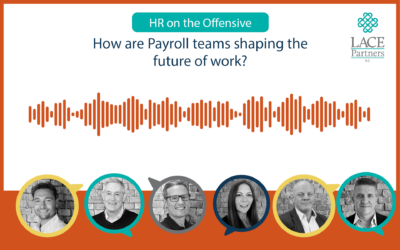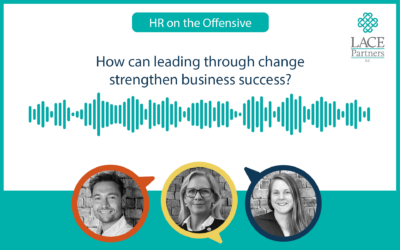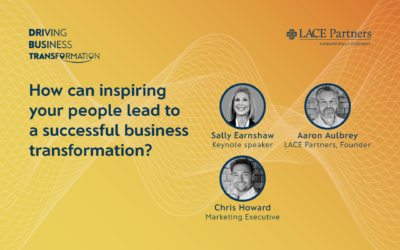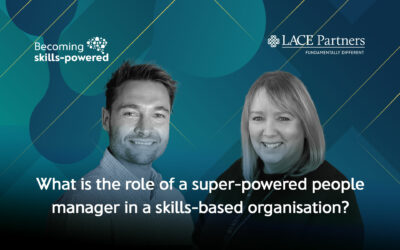Late in 2021 we spoke to HR industry influencer Merv Dinnen about a whitepaper he wrote in conjunction with SHL. In today’s blog we have summarised some of his thoughts and picked out some of the key talking points, which looked at the six shifts that are commonplace in changing candidate experience. Find out more about the whitepaper and download it here.
Deliver the same experience for candidates that you would your consumers
When anybody in the HR or talent management space talks about the ‘candidate experience’ it can be easy to feel like a road that has been already well travelled continues to be trodden. As somebody who has worked in the talent management industry for many years I have seen a shift, and the emphasis on delivering an excellent experience is much more prevalent than 10+ years ago.
Recruiters have talked about improving the candidate experience. HR has talked about the candidate experience. Researchers and journalists have talked about the candidate experience. So why does it feel that in many instances and with many businesses of differing shapes and sizes, that the application process is so archaic even today? We are not talking about small businesses here either, but larger organisations who have impressive consumer experiences and services delivered, yet do not approach their candidate experience strategies in the same way. Candidates are consumers too, and with ever-increasing ways in which information can be shared online, it seemed strange that organisations do not focus more attention on delivering that ‘best in class’ candidate experience.
I wanted to explore this with SHL and through that research we identified six areas that organisations could use that would make that all important impact.
Candidate experience is constantly evolving – organisations must constantly iterate their own candidate experience
To get the candidate experience right it is essential to look at the whole lifecycle of the individual and recognise there is not a relay race taking place. An individual should never feel like they are the baton, being handed from the Talent Acquisition Team to the Learning and Development Team, as the individual moves from application, to onboarding, through their lifecycle with a business.
The candidate experience is also constantly iterating, never static and when we started the research we looked at some of those businesses who had excellent candidate experience, winning awards, where it became clear that the winners of some awards are constantly changing each year. In the age of technology where the ability to provide feedback is accessible to so many, organisations need to ensure that every interaction, across every part of the business, needs to be to the highest standard. The most successful organisations recognise this and constantly re-evaluate where they can improve and what that looks like, alongside constantly reviewing and assessing their employee value proposition, as part of the entire employee lifecycle.
What creates an exceptional candidate experience?
1. Giving value – passive to interactive
Giving value is important and successful organisations who have impressive candidate experiences recognise the importance of adding value to every candidate, whether successful or not. If a candidate feels like they have had value from a process they are more likely to return if other opportunities arise, increasing the future talent pool. After all, just because a candidate is not suitable today, does not mean they won’t be suitable tomorrow.
2. Empowering candidates – 9 to 5 to 24/7
Recognising that the interaction that an individual has with your business is not a Monday to Friday, 9am to 5pm activity, separates the best organisations. You are just as likely to make a purchase on an online shopping website in the middle of the night on a Saturday as you are during the middle of the working week and so responsiveness to questions a candidate has during the application process is the same. You can’t be available to answer questions 24/7 but that is where the information you provide the candidate with can help them through that process. If you are hiring for a Marketing Manager for example, how much information other than the job spec are you providing? In between the application of the CV is there more they can be learning about the role, like articulating what marketing looks like within your business – what are the tasks typically performed? What can be achieved in that role? What types of projects have marketing managers been involved with during that process? Giving value back to the person who has devoted time and effort to the application process is important to demonstrate a worthwhile experience for that individual.
3. Continually iterate – set and forget to agile
The candidate experience is not just one process, but dozens of micro experiences and touchpoints and although that can seem daunting, organisations that act innovatively when it comes to positive candidate experience delivery are those that see these micro experiences as opportunities to make small and incremental changes on a constant basis. Test, test and test again; from wording on job descriptions, to different language on website applications, to see how the candidates interact. And with the ability for businesses to capture and analyse more data than ever before, this becomes a realistic opportunity for businesses to make those changes based on the data they collect.
4. Personalising experiences – mass market to personal
Candidates could be spending hours on research in preparation for that all-important interview and if you have spent a large amount of time and effort on a process, to be given generic feedback or to feel like your efforts have been in vain, has a detrimental affect on your perception of that employer’s brand.
5. Being authentic – rehearsed to real
Most consumers trust user-generated content over advertising. Getting validation from real people is important and so the days of a glossy employer brand video are behind us. Authenticity is crucial and individuals want to hear the real story behind the business they are working at before they join. More organisations should focus on that personal touch of people within the business and using advocates and the real people within your business can be much more powerful than any impressive brand video attempting to show a utopia that doesn’t feel real.
6. Differentiate via diversity – display to demonstration
Jobseekers see a diverse workforce as essential. People live their lives in a diverse community and they expect their working life to mirror that. Diversity cannot be passive, it must be embedded within the candidate process and it needs to be clear in how you communicate your approach to diversity. Making sure the application process clearly treats all candidates fairly is vital.
If you’d like to discuss your approach to managing both the candidate and people experience, why not reach out to us using the below form? We would be happy to discuss it with you.






